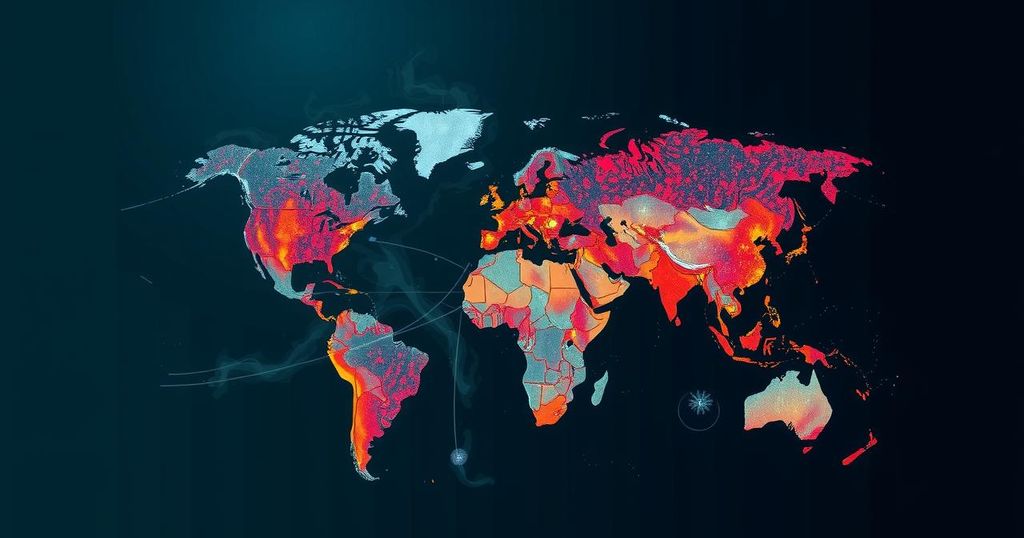Impact of Climate Change on Public Health: A Record Threat Assessment

A major report reveals that climate change significantly threatens human health, indicating record levels of danger influenced by extreme weather and other climate events. With rising heat deaths and a surge in diseases like dengue, urgent action is called for as the world faces unprecedented health crises, ahead of key international discussions and potential political shifts in the United States.
On Wednesday, a significant report highlighted the escalating dangers that climate change poses to human health, asserting that “wasted time has been paid in lives.” As 2023 is anticipated to exceed prior years in temperature records, this report emerged amidst severe global climate events such as heat waves, wildfires, hurricanes, droughts, and floods. It coincides with the upcoming United Nations Climate Change Conference (COP29) in Baku, Azerbaijan, and an imminent United States election, which could potentially restore climate skeptic Donald Trump to the presidency. Compiled by 122 experts, including representatives from esteemed organizations such as the World Health Organization, the eighth Lancet Countdown on health and climate change details a grim assessment of health impacts. The report identified that out of 15 tracked indicators over eight years, ten have reached alarming new heights. Among the worrisome trends noted are the rise in extreme weather occurrences, increased fatalities among the elderly due to heat, the proliferation of infectious diseases, and food shortages resulting from the adverse effects on agriculture due to droughts and floods. Marina Romanello, the Executive Director of the Lancet Countdown, stated that the findings demonstrate “record threats to the health and survival of people in every country, to levels we have never seen before.” Since the 1990s, heat-related deaths in individuals over 65 have surged by 167 percent. Furthermore, rising temperatures are expanding the habitats of mosquitoes, leading to a wider transmission of deadly diseases; last year alone saw a record of over 5 million dengue cases worldwide. The report also highlights a critical reduction in global tree cover, with approximately 5 percent lost between 2016 and 2022, diminishing Earth’s capacity to absorb carbon dioxide due to human activities. It scrutinizes the role of oil and gas companies, along with certain governments and financial institutions, in exacerbating climate change. Despite repeated warnings over the decades, emissions of crucial greenhouse gases have risen yet again in the previous year. This rise coincided with significant profit increases for major oil and gas firms and the provision of new subsidies for fossil fuels provided by various countries in response to the economic repercussions following the Russian invasion of Ukraine in February 2022.
The report discussed in the article is part of a comprehensive assessment that evaluates the intersection of health and climate change, focusing on various indicators that reflect the impacts on public health. The Lancet Countdown series has been a key resource in understanding how climate change exacerbates health issues globally, tracking various metrics over the years to provide experts, policymakers, and the public with essential data on the health consequences of our changing climate. The growing frequency and intensity of climate-related disasters highlight the urgency for action to mitigate these threats and reduce emissions, particularly as the global community prepares for significant events like COP29.
In conclusion, the report underscores a pressing need for immediate action to address climate change as it increasingly threatens global health. With record figures in health risks attributed to climate events and worsening living conditions, it is imperative for governments, organizations, and individuals to prioritize climate action and seek sustainable solutions to combat these unprecedented challenges. As the world anticipates the upcoming COP29 and navigates the political landscape, the conversation around climate change and health must become integral to policy formulation and global strategy.
Original Source: www.manilatimes.net






